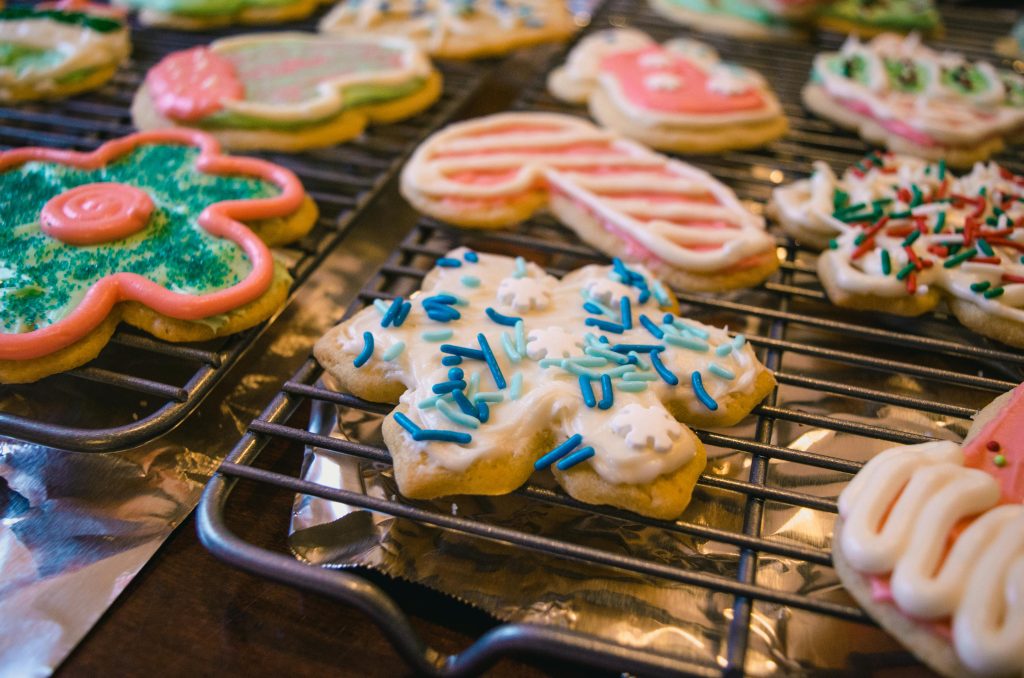I Messed Up My Diet at Christmas. Now What?
The holidays are a time for joy, connection, and—let’s be honest—delicious food. From the rich desserts and festive cocktails to the indulgent meals shared with loved ones, it’s easy to stray from a carefully planned diet during the Christmas season. If you’re feeling like you overdid it this year, you’re not alone. Many people find themselves stepping on the scale post-holiday only to feel regret, guilt, or even panic.
But here’s the truth: messing up your diet at Christmas doesn’t mean you’ve failed. In fact, it’s normal. The important thing is how you handle the days and weeks after the holidays. This post will guide you through the process of bouncing back from holiday indulgence with compassion, resilience, and a focus on long-term progress.

Step 1: Let Go of the Guilt
Guilt is often the first emotion to bubble up after holiday indulgence. We replay the moments we had that extra slice of pie or another helping of mashed potatoes, and the negative self-talk kicks in.
Why You Shouldn’t Feel Guilty:
- One Day Won’t Ruin Your Progress – Weight gain doesn’t happen overnight. It’s the cumulative effect of consistent overeating over weeks or months. A single day or even a week of indulgence won’t erase the hard work you’ve put in throughout the year.
- Guilt is Counterproductive – Beating yourself up can lead to further emotional eating or feeling demotivated. Instead, acknowledge the holiday splurge and move forward.
- You’re Human – The holidays are about celebrating with food, family, and friends. Enjoying festive meals is part of the experience.
How to Shift Your Mindset:
- Practice Self-Compassion – Talk to yourself the way you would a friend. Would you shame a loved one for enjoying Christmas dinner? Treat yourself with the same kindness.
- Reframe the Experience – Instead of focusing on what went “wrong,” think of the memories made and the joy shared.

Step 2: Assess Without Obsession
While it’s important not to obsess over holiday weight gain, it can be helpful to reflect on what happened.
Ask Yourself:
- Did I eat because I was truly hungry, or was it emotional eating?
- Were there moments when I overate simply because the food was available?
- Were there triggers, like family stress or social pressure, that contributed to the indulgence?
Why This Matters:
Understanding the “why” behind holiday indulgence can help you better prepare for future events. If you recognize patterns, you can develop strategies to handle similar situations differently next time.

Step 3: Hydrate and Rebalance
After a season of rich foods and sugary treats, your body may feel sluggish, bloated, and out of sync. One of the easiest ways to start feeling better is to focus on hydration and nutrient-dense foods.
Hydration Tips:
- Water First Thing in the Morning – Rehydrate your body as soon as you wake up.
- Herbal Teas and Infused Water – These can help with digestion and reduce bloating.
- Limit Alcohol and Sugary Drinks – Cut back on holiday cocktails and sodas for a few weeks to let your body reset.
Focus on Nutrient-Dense Meals:
- Lean Proteins – Chicken, turkey, fish, and legumes help rebuild and repair the body.
- Leafy Greens – Kale, spinach, and broccoli are packed with fiber and antioxidants.
- Healthy Fats – Avocados, nuts, and seeds help stabilize blood sugar and curb cravings.
- Whole Grains – Oats, quinoa, and brown rice can restore balance to your energy levels.

Step 4: Get Moving (But Don’t Overcompensate)
It’s tempting to think that punishing yourself with long hours in the gym will “undo” holiday indulgence. This approach, however, can lead to burnout and resentment toward exercise.
The Right Approach:
- Ease Back In – Start with light walks, yoga, or low-impact activities to get moving without overwhelming your body.
- Focus on Consistency, Not Intensity – A 30-minute daily walk is more sustainable than trying to do an extreme two-hour workout.
- Enjoy Movement – Dance, swim, or take a fun group class. Movement doesn’t have to feel like punishment.
Why This Works:
Exercise is not just about burning calories. It boosts your mood, improves digestion, and helps you reconnect with your body.

Step 5: Reestablish Routine
One of the hardest parts of post-holiday life is returning to routine. Holiday schedules are often chaotic, and slipping back into normal habits can feel challenging.
Small Changes to Rebuild Routine:
- Plan Meals in Advance – Meal prepping can help you avoid the temptation of convenience foods.
- Set Exercise Times – Pencil in workouts the same way you would an important meeting.
- Prioritize Sleep – Quality rest helps regulate hunger hormones and reduces cravings.
Pro Tip:
Don’t try to change everything at once. Focus on one habit at a time, whether it’s meal planning or adding more movement. Small steps lead to sustainable progress.

Step 6: Reflect on the Bigger Picture
Weight loss and health journeys are not linear. There will be ups and downs, periods of fast progress, and moments of stagnation. The holidays are just one small chapter in a much longer story.
What Matters Most:
- Long-Term Consistency – Sticking to healthy habits for months and years is more impactful than a week or two of indulgence.
- Celebrate Progress, Not Perfection – Acknowledge the effort you’ve put in and how far you’ve come.

Step 7: Prepare for the Next Holiday
Believe it or not, preparing for the next holiday season starts now. Reflect on what worked and what didn’t this year.
Create a Game Plan:
- Set Boundaries in Advance – Allow yourself one or two indulgences rather than an all-out feast.
- Bring Healthier Dishes – Contribute a nutritious option to holiday meals.
- Focus on Connection, Not Food – Engage in activities that aren’t centered around eating, like games, walks, or crafts.

Final Thoughts: Progress, Not Perfection
Messing up your diet at Christmas is not the end of your weight loss journey. It’s a bump in the road—one that can ultimately teach you resilience, patience, and self-love. By focusing on small, positive steps forward, you can leave the holiday guilt behind and step into the new year with confidence.
Remember, weight loss isn’t just about the food you eat. It’s about building a healthier relationship with yourself, your body, and the process of change. The holiday season is a chance to practice this balance, not perfect it.

💬 Join the Bariradka Transformation Support group on Telegram!
Get exclusive tips, behind-the-scenes content, and chat directly with the author.
➤ Join the Community

